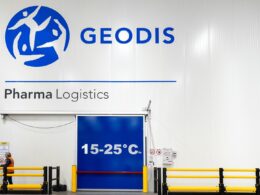The government and industry initiatives have granted £30 million to a Scottish-led project to develop a hydrogen fuel cell-powered heavy goods vehicle (HGV).
The grant was awarded to Hydrogen Vehicle Systems (HVS) by the UK government’s Advanced Propulsion Centre (APC) as part of a larger financing package to boost zero-emission in the transport industry.
HVS received the funds after winning a competition for developing vehicle technology and increasing capability toward net zero. APC’s contribution will cover half of the project’s estimated £30 million overall cost. HVS will get a £15 million government grant, with an additional £15 million coming from the sector.
HVS CEO Jawad Khursheed described the award as a “significant milestone” in the project’s development.
The UK Government performed rigorous due diligence in selecting HVS to receive this grant – acknowledging that our advanced technology is a key innovation towards achieving zero-emission targets.
We have successfully produced our first driving fuel cell technology demonstrator vehicle and are on track to deliver the UK’s first-to-market hydrogen fuel cell-powered HGV.
We have experienced rapid growth at HVS in as little as a year, now with this Government support we will boost innovation, create thousands of UK-based jobs, and build upon our goal towards cleaner HGVs.
HVS CEO, Jawad Khursheed
HVS intends to produce a “clean and economic” cab and tractor unit to replace comparable diesel-powered vehicles now in use across the UK and Europe. HVS intends to replace inefficient battery systems on current heavy cargo vehicles with its hydrogen fuel cell, enabling net zero haulage to places across the country.
The project, which is set to last through June 2025, is spearheaded by Glasgow-based HVS and incorporates Grayson, Fusion Processing, and PNDC (a commercial arm of Strathclyde University specialising in power electronics). They will collaborate to create the vehicle’s fuel cell and battery hybrid powertrain. Together, they will cover engineering, testing, and development.
The UK Government intends to prohibit the sale of all non-zero emission HGVs weighing between 3.5 and 26 tonnes by 2035 or sooner and to prohibit the sale of all non-zero emission articulated lorries by 2040. The HVS project goes a long way to make this possible.
Considering that the battery packs used by smaller electric vehicles at the scale required would be prohibitively heavy and have lengthy charging times, hydrogen propulsion is seen as central to decarbonizing HGVs.
Last month, the company unveiled its “game-changing” hydrogen engine in the form of a 5.5-tonne technology demonstrator, which served as a preview of its projected 40-tonne zero-emission HGV. The 5.5-tonne prototype took ten months to complete and is a lesser version of the technology that is eventually hoped to be utilised in larger vehicles.













